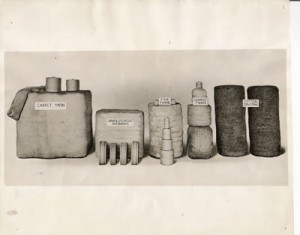Exploring Emerging America’s Windows on History Program
Since 2006, Emerging America’s Windows on History program has mobilized more than 30 research teams of K-12 students with their teachers and in partnership with historical societies, museums, town and college libraries, expert individuals, and other very local resources. Students learn to think historically as they track down primary sources to tell the story of their communities and their place in the world. This is the third in our series of close-ups on these sites.
Ludlow: From Small Village to Industrial Town By Rebecca Rideout
Fifth and eighth grade classes in Ludlow teamed up to study the town’s history and create the detailed website: “Ludlow: From Small Village to Industrial Town.” Teachers, Laura O’Keefe, Paul R. Baird Middle School and Jackie Zima, Chapin Street Elementary School, led the project. Indeed, this site is a model of a student and teacher-developed, web-based town history.
The website’s thorough exploration touches on many parts of Ludlow’s history, from Native American hunting practices to the Ludlow Manufacturing Company’s array of jute products produced in the 1920s. Each report is prefaced by questions that were answered by the primary sources, encouraging the reader to delve deeper into the students’ research.
The young historians used an array of primary sources such as farm tools employed by early settlers, Native American artifacts, gravestones, and documents including a 1790 census, letters between citizens, and an agricultural profile summarizing farm statistics from 1801-1974. By reading and inspecting these sources, students uncovered a story about an era and found details that helped explain the lives of Ludlow’s earlier residents.
The classes learned that Springfield was founded for beaver hunting, while the region that is now Ludlow served as a hunting and wood-gathering outpost. Research at the town’s cemetery shed light on serious diseases and accidents that were common to early Americans. Reports of the town’s largest cider mill taught students about the importance of apple cider to the residents of Ludlow (“it was pretty much all they drank”).
Some of the best learning moments, however, occurred when students realized that historical research cannot answer every question. Some mysteries remain unsolved. For example, the origin of the town’s name is unknown, though students explored several possible answers to this common inquiry.
The huge amount of information collected and assimilated by the two classes is organized into eight categories, from Early Settlement to Agriculture, Legends, and Maps & Bridges. The website holds an impressive fifty-three pages of information, each with at least one corresponding photo.
From the production of palm leaf hats to the influx of immigrant families and the host of fascinating legends, the students revealed a vibrant history of Ludlow that is thorough and readable.
The teachers and students received additional assistance from the Center for Educational Software Development at UMass, with support from the Teaching American History program of the U.S. Department of Education. Historical material was provided by the Ludlow Historical Commission and Ludlow Manufacturing Associates; additional books and photographs were contributed by town residents.




